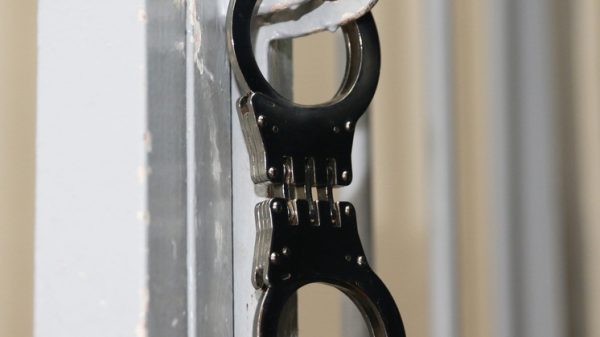
A man waits at a vaccination centre in Saint-Jean-de-Luz, south-western France, where a sign reads: 'No AstraZeneca vaccinations today'
Credit: Bob Edme/ AP
Brussels blamed EU governments for growing vaccine chaos on Tuesday night as it accused them of stockpiling jabs despite a looming third Covid wave.
The European Commission’s rare rebuke of member states came after 17 countries including Germany, France, Italy and Spain halted the rollout of the Oxford/AstraZeneca vaccine until the EU’s medicines regulator completes an investigation.
On Tuesday, however, the European Medicines Agency (EMA) said there was "no indication" that the suspended AstraZeneca vaccine caused fatal blood clots. It will give the result of its investigation on Thursday.
While new figures from the Office for National Statistics (ONS) showed the success of the UK’s vaccination programme – with three quarters of over-80s and one in three overall now testing positive for antibodies against Covid – the French prime minister and Germany’s national disease centre warned of a third wave.
Matt Hancock, the Health Secretary, urged European countries to follow the lead of Britain’s "world class regulator" and continue using the jab, adding that its "real world impact" had been demonstrated in the 11 million British people who had received it.
In what will be seen as a thinly-veiled swipe at countries that have suspended AstraZeneca vaccinations, Mr Hancock added: "We know not only is it safe, it’s actually saving lives here right now."
Which EU countries have suspended use of the AstraZeneca vaccine?
Stella Kyriakides, the European health commissioner, said on Tuesday that vaccination was "more than ever key" and urged EU member states to use every vaccine they had rather than stockpiling them.
"Even with the immense and regrettable challenges around production capacity and deliveries, there are reports of unused reservoirs of vaccines across the European Union," she said after a meeting of EU health ministers.
"We currently see the proportions of available vaccine doses distributed range from 50 to 100 percent across member states."
Ursula von der Leyen, the European Commission president, who has faced fierce criticism from national governments over the glacial pace of the EU rollout, would "of course" accept the AstraZeneca jab, her spokesman said.
EU member states have received 62.2 million vaccines under the joint procurement scheme run by Brussels and administered 77 per cent of those – about 48 million shots. About 14.8 million AstraZeneca vaccines have been delivered to EU countries, with less than half, 7.3 million, being used.
The figures include non-EU members Norway and Iceland, which have also suspended the vaccine.
Oxford-AstraZeneca vaccine supply in EU
Sweden, Cyprus, Slovenia and Portugal became the latest EU countries to pause the use of the jab on Tuesday despite the EMA and the World Health Organisation saying it was safe and the EU lagging far behind Britain in its vaccination programme.
Emer Cooke, the executive director of the EMA, said: "We are still firmly convinced that the benefits of the AstraZeneca vaccine in preventing Covid-19, with its associated risk of hospitalisation, outweighs the risk of the side effects."
Some 30 cases of blood clots among almost five million people vaccinated had been reported to the EMA by March 10, but additional cases had been reported over the weekend, Ms Cooke said. She said the EMA-approved Pfizer and Moderna vaccines appeared to be linked to similar numbers of blood clots around the world as the AstraZeneca one.
Ms Cooke stressed that the EMA would resist any pressure from powerful governments and would be guided by "science and independence", and admitted the regulator was "worried" about the effect on trust in vaccines after the latest twist in AstraZeneca’s tortured relationship with the EU.
A poll of national safety concern of Oxford-AstraZeneca vaccine
Scientists and politicians in Britain have defended the AstraZeneca vaccine’s record. Professor Dame Clare Gerada, one of the UK’s leading doctors and a former president of the Royal College of GPs, accused Europe’s leaders of "weaponising" fears over the jab and said they should "get a grip".
Boris Johnson would be "perfectly happy" to have the AstraZeneca jab, his spokesman said, adding that British regulators had been clear the vaccine was safe and effective.
Asked what his message to EU countries would be, Mr Hancock told reporters: "What I would say is that this Oxford/AstraZeneca vaccine is safe and we should listen to the regulators and the British regulator, the world-class regulator, the World Health Organisation and the European Medicines Agency.
"They’ve all looked at the data. Over 11 million people have been vaccinated with the Oxford-AstraZeneca vaccine, and we can see in the real world its impact. We can see it that it is not only safe but saving lives."
The Duchess of Cornwall also extolled the virtues of the jab on Tuesday, calling it "very good news" as she visited a vaccination centre at the Finsbury Park Mosque. She said she had received the AstraZeneca vaccine and agreed that "you take what you are given" as she chatted with GP Dr John McGrath.

The Duchess of Cornwall, visiting a vaccination centre at Finsbury Park Mosque, said the jab was 'very good news'
There was fury in Berlin at the decision to suspend the AstraZeneca jab, which now threatens to engulf Angela Merkel’s government in a political crisis. Her closest ally, the Bavarian regional leader Markus Söder, broke ranks with the chancellor and told German television he was ready to take the vaccine "immediately".
Her main coalition partners condemned the decision as a "U-turn" that suggested the government has "no clear policy". Opposition parties called on the health minister to resign, demanded an inquiry and accused Mrs Merkel of endangering lives.
Germany’s national disease centre warned that the country is now in a third wave that could see it break previous records by Easter, and there were also warnings that suspending the vaccine for just one week could cost the economy £1.7 billion.
In France, Jean Castex, the prime minister, said new Covid variants meant the country was "in a sort of third wave".
Frank Ulrich Montgomery, the German head of the World Medical Association, said: "The bottom line, sadly, is that this good and effective vaccine is not being accepted by the public in many countries because of the row and the suspension."
British-Swedish company AstraZeneca has been at loggerheads with the EU over supply shortfalls since January. On Saturday, the company told the Commission there would be a 60 million dose shortfall in its planned deliveries to the bloc by the end of March.
France’s industry minister, Agnes Pannier-Runacher, said AstraZeneca’s CEO was in the "hot seat" over the delivery delays, adding that the EMA investigation was necessary to stop "mistrust" in the vaccine.
But Nicola Magrini, the director-general of Italy’s medicines agency, said the choice to suspend was "a political one". "We got to the point of a suspension because several European countries, including Germany and France, preferred to interrupt vaccinations," he told La Repubblica.
Belgium and Poland, which still use AstraZeneca, criticised the suspensions. "We are never going to get Europe vaccinated like this. Then we’re going to get a third, fourth, fifth wave," said Frank Vandenbroucke, the Belgian health minister.
Michal Dworczyk, the Polish prime minister’s chief of staff, said, "It is possible that we are dealing with a planned disinformation campaign and a brutal fight of medical companies."

























































Свежие комментарии